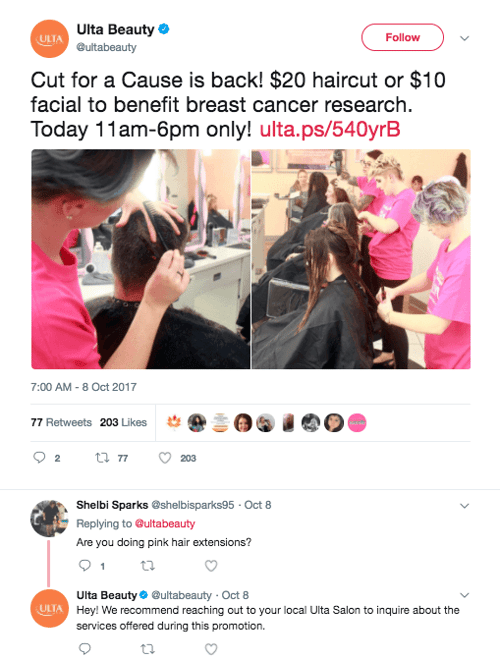The rise of eCommerce is a popular topic these days, but brick-and-mortar stores are far from dead. On the contrary, most consumers still prefer to shop in-store rather than online so they can experience the products first-hand. One way your store can compete with the convenience of online shopping is by enhancing the mobile experience to drive in-store traffic.
According to a study from Deloitte Insights, 56 cents of every dollar spent in a physical store is influenced by a digital interaction, many of which take place on mobile. This means your business stands to lose valuable sales if you don’t adapt to evolving consumer preferences.
To help drive in-store traffic, here are a few mobile best practices to consider:
Use Segmentation to Send Personalized Emails
With more than half of email opens occurring on smartphones, email remains one of the most effective ways to reach mobile users. But if you want your messages to resonate, they must be timely, relevant and tailored to each user. To do this effectively, focus on building customer segments based on demographic, geographic and behavioral data to encourage spending at your physical store.
For example, you could build a custom segment based on men in Virginia who have purchased a jacket in the last 30 days. Then, you can cross-sell them in your email and point them to the nearest store location to drive foot traffic to your physical store.
Create a Unique, In-Store Brand Experience
The ability to delight customers with in-person experiences is a key advantage for brick-and-mortar retailers. Capitalize on this by creating a stimulating retail environment that aligns with your brand’s core values.
For example, Ulta Beauty stands out from other beauty stores by offering services like haircuts and brow treatments. Plus, they give consumers an additional reason to visit their physical locations when they offer promotions that benefit non-profit organizations. Then, Ulta promotes these services across their social media channels and encourages their followers to visit their local stores.
Offer Click-And-Collect Services
There is arguably no better way to drive in-store traffic than by offering what is known as click-and-collect services. The trend, which involves buying merchandise online and picking it up at a physical store, is growing in popularity each year. According to a report by ICSC Research, 71 percent of survey respondents said that they had used click-and-collect services in the last year. This is up from 49 percent in 2016.
Why is click-and-collect so popular? Simply, it offers customers the ultimate convenience. By allowing your customers to buy online and pick-up in-store, you are feeding into their need for instant gratification.
To make click-and-collect work for you, consider dedicating a space strictly for these services to improve the customer experience. Also, add coupon offers to the purchase that can be redeemed only at that store to encourage future in-store purchases.
Use Mobile Apps to Drive In-Store Traffic and Increase Customer Loyalty
If your business doesn’t have an app, you may want to consider investing in one. Not only are mobile apps a great way to drive online sales, but they are also an effective medium to complement your brand’s offline store experience.
A 2016 study from Aruba and Hewlett Packard Enterprise found that 86 percent of respondents use retail mobile apps. Even more impressive, one in eight shoppers use a retail mobile app at least 10 times a week.
Mobile apps provide brands with an opportunity to engage customers and boost loyalty. The key to success, as with most marketing, is to make messages timely and relevant. Segment your mobile app audiences and send them targeted offers based on their behavior in your app or their past purchase history.
Make Product Information Readily Available on Mobile
While some shoppers enjoy talking to sales associates, others would rather avoid them altogether. In fact, a recent study found that 77 percent of shoppers consult their phones for product information while they shop in retail stores.
Consumers are also turning to their mobile devices for product availability, prices and customer reviews. By making this information easily accessible, you can improve the customer experience and increase conversions.
Final Words
Your physical store doesn’t need to be a burden. By embracing new technologies and best mobile practices, it can be turned into a powerful eCommerce asset. Implementing these best practices will help enable a true omnichannel shopping experience for your customers.
Curious to see where your store falls on the eCommerce marketing maturity scale? Find out in our latest eBook, The Four Stages of Marketing Maturity!





